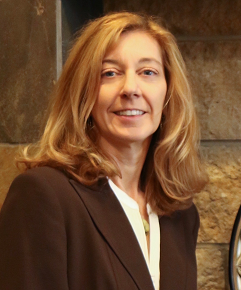Collaborative Divorce is a method of divorce that started in Minnesota in 1990 and has now spread to more than 25 countries. The initial defining principle of Collaborative Divorce was that the lawyers would withdraw if the matter became adversarial and went to court. That focal point rapidly led to an evolution toward Collaborative Team Divorce in which Collaborative lawyers team up with Child Specialists, Neutral Financial Professionals, and Coaches to help clients achieve a deeper resolution of their issues.
While the team approach has been very effective, hiring “full teams” of four to six professionals for each case can put the cost of Collaborative Divorce beyond the reach of many families. Therefore, Collaborative Divorce is now evolving once again to offer families an “a la carte” approach that allows them to design a “Collaborative Approach” that meets their needs.
The Board of the Collaborative Law Institute of Minnesota (CLI), the world’s first Collaborative Law association, wrestled with this issue for more than a year before coming up with a description of this “a la carte” approach that struck a delicate balance between maintaining the integrity of the Collaborative Model and offering affordable alternatives to a broader range of families. Both authors of this article have been on the CLI Board at different times during the maturation of this discussion.
How does collaborative practice work?
In creating these new options, the Board of CLI realized that one of the guiding principles of Collaborative Practice is that it is first and foremost an out-of-court process with a disqualification agreement (meaning that if either person decides to go to court, the lawyers cannot represent the clients in the court process, and the parties will need to find litigation counsel).
This provision allows everyone to focus on problem-solving on behalf of the clients and their children, and reach a settlement that works for both parties and any children. Collaborative Practice is a voluntary process, focused on transparency of information; instead of taking legal positions on issues that draw battle lines in the sand, we use “interest-based negotiation” in which the clients focus on explaining and fleshing out their most important needs and concerns – rather than their theoretical legal rights – so they can reach a deeper resolution.
Generally, we have found that having an interdisciplinary team of professionals, including not only lawyers, but also mental health professionals, financial advisors and more, operating outside the shadow of the courthouse, often provides clients with the best opportunity to achieve these goals and interests. However, we also have come to realize that it is not financially practical for many clients to engage a full team of professionals.
Building a more affordable, accessible model
Therefore, we decided to develop ways in which clients can have many of the benefits of the Collaborative Process (i.e. an out of court focus, interest-based bargaining, and interdisciplinary practice), without having to engage the full “bundle” of collaborative professionals.
The Collaborative Law Institute of Minnesota (CLI) has defined itself as an organization of multidisciplinary family law professionals who value resolving family law matters:
- With respect, dignity, and integrity
- In a child-centered and family friendly way
- Using a customized process based on client needs
- With a holistic blend of legal, financial, parenting, and relationship expertise
- Focusing on equitable and sustainable solutions
- Limiting the scope of services to out-of-court problem solving
Bearing all this in mind, CLI has developed a new website that includes new detailed information about a la carte services that we can provide, grounded in the shared values and skills listed above.
The website includes a variety of examples of how clients can use any of the individual professionals in a limited scope, out-of-court manner, in cases such as the following:
- When couples have resolved issues that must be addressed in their divorce, and they would like a settlement-oriented lawyer to draft all the necessary legal paperwork.
- When couples are working through a divorce mainly on their own, but would like the assistance of a neutral child specialist – a licensed mental health professional specializing in child-development and family systems, who focuses on helping families craft a child-focused parenting plan.
- When individuals completed a divorce some time ago and would like input from a neutral child specialist or neutral coach: a licensed mental health professional specializing in communication, relational and conflict-resolution skills, regarding family issues related to their children, or their co-parenting relationship, or ongoing communication with one another.
- One spouse (or both) would like a neutral financial advisor, a professional with strong financial acumen who can run calculations and options without investment in a particular outcome for either person, to assist in determining options for dividing property in a divorce, but are otherwise comfortable handling the divorce on their own.
In addition, families can combine portions of the Collaborative Process so that families can have “mini-teams” to fit their particular situation. Quite often the type of “mini-team” that is hired may depend on the first professional they select in the a la carte system. For example:
- Clients who chose to start by working with a neutral financial advisor for a few sessions, may choose to have a child specialist help them on the parenting portions, and simply bring in the lawyers at the end to review and finalize the process.
- Similarly, a couple with relatively simple financial issues could work with a child specialist or coach at the beginning and bring in lawyers where needed.
- Clients who begin in the more traditional manner of starting with lawyers may either have the lawyers assist through most of the process or have the Lawyers “step back” while other team members assist with the majority of the work.
While all of these options involve some professional assistance, couples can sometimes complete the process for as little as $2000-$4000, and still have the benefit of finding deeper resolution, as well as hopefully developing skills to help them beyond the divorce. Of course, cost always depends on how ready clients are to reach settlement.
Following the uniform standards developed to define and regulate Collaborative Practice by lawyers, we have held to the principle that in order to be defined as a “Collaborative Divorce” there must be lawyers for both spouses involved, who agree to withdraw if the divorce goes to court.
However, couples who choose to be self-represented can still get assistance from other Collaborative Professionals (who work with the parties but will not go to court). Similarly, if a client chooses to work without lawyers in an a la carte manner, it is not technically an unbundled “legal” service, but a version of unbundling with some of the components of a Collaborative Team. Whether it is necessary to find other terms for describing these options is still an unresolved issue.
For the time being, our focus has been on trying to create tools for families that will give them as many options as possible, and to make at least some, if not all, of the benefits of the Collaborative model affordable for a wider range of families. We commend this approach to those seeking affordable expert assistance in the divorce process.
Learn more at www.collaborativelaw.org
ABOUT THE AUTHORS
 Louise Livesay
Louise Livesay
Founder, Livesay Law Office
Louise Livesay, JD is known for her ability to problem-solve on behalf of her clients in a way that maximizes the best outcome for the entire family. Understanding that most families facing divorce or uncoupling want to have effective co-parenting relationships and be treated with respect and feel heard during the process, she has created a practice focused on fostering healthy families as they transition to a new configuration through non-adversarial methods, such as the Collaborative Process and Mediation. For more information about his practice go to www.collaborativelawmn.com
 Ron Ousky, JD, is a Collaborative Attorney and mediator who has dedicated his practice to making sure that families facing conflict understand their options. He believes that families facing divorce are in a unique situation to make a better life for their families and he is dedicated to helping them find the resources to build a better future. For more information about his practice go to www.ousky.com
Ron Ousky, JD, is a Collaborative Attorney and mediator who has dedicated his practice to making sure that families facing conflict understand their options. He believes that families facing divorce are in a unique situation to make a better life for their families and he is dedicated to helping them find the resources to build a better future. For more information about his practice go to www.ousky.com
Tagged with: Collaborative Divorce • collaborative divorce process • Collaborative Family Law • Hiring Divorce Attorney • Limited Scope Legal Services • Unbundled Divorce • Unbundled Divorce Services • Unbundled Legal Advice • out of court • Problem Solving • Respectful divorce •Mediation •win-win outcomes
 Angela is a collaborative family law attorney at Heart Law, LLC. Her mission is to enable and empower divorcing couples to have a smooth transition that is family focused during a life changing event. To find more information about Heart Law go to www.heartlaw.net.
Angela is a collaborative family law attorney at Heart Law, LLC. Her mission is to enable and empower divorcing couples to have a smooth transition that is family focused during a life changing event. To find more information about Heart Law go to www.heartlaw.net.



